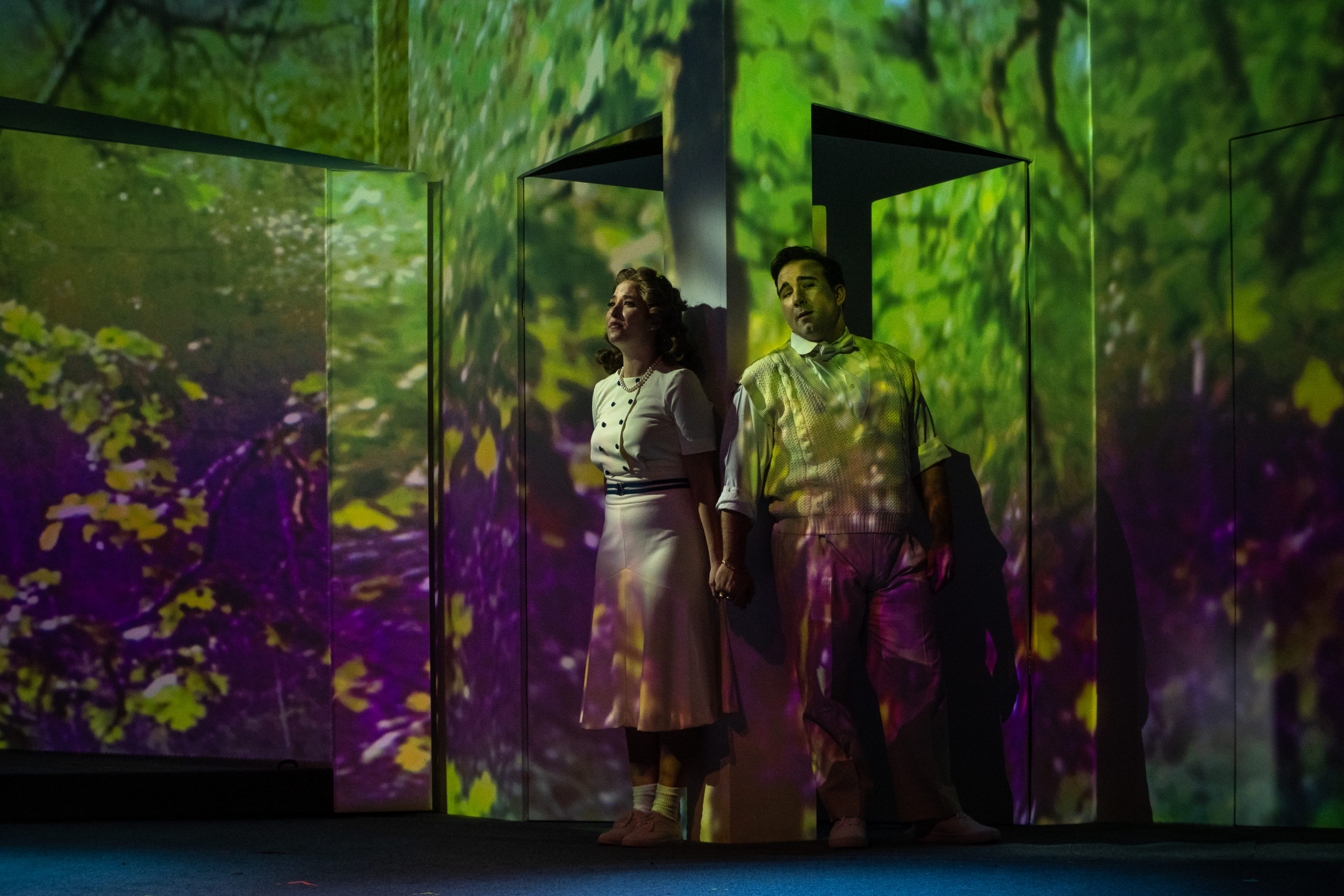
Whoopi Goldberg in the Garden of the Finzi-Continis
Whoopi may have chosen the last name “Goldberg,” but that hasn’t given her a yiddishe kop.
She and the rest of The View’s chatty all-female talk show were weighing in on a Tennessee school board’s banning of Maus, Art Spiegelman’s graphic memoir about the Holocaust, with Jews as mice and Nazis as cats. The genocide was “not about race,” Whoopi Goldberg said. It was instead about “man’s inhumanity to man.” And it involved “two white groups of people.”
And yet, the epigraph to Maus is this, from Adolf Hitler himself: “The Jews are undoubtedly a race, but they are not human.”
Ironically, as Goldberg was accidentally inciting outrage for her Jan. 31 remarks on the ABC daytime show she co-hosts, the story of “The Garden of the Finzi-Continis” was being rebirthed as an original opera (music by Ricky Ian Gordon, libretto by Michael Korie.) Its brief run, by the National Yiddish Theatre Folksbiene and the New York City Opera, was attracting sold-out performances at the theater of the Museum of Jewish Heritage, across from the Statue of Liberty. And the revival of this iconic story of Jewish self-delusion in the face of Naziism couldnt come at a more opportune time, showing us that these questions of race and identity have never been simple, even for Jews.
The Giorgio Bassani novel, which became the 1972 Academy Award Best Foreign Language Film, directed by Vittorio De Sica (watch it on YouTube), remains, as I realized when I saw it again recently, a haunting warning to those of us Jews who think we’re a secure part of the nation we call home.
The Finzi-Continis, arrogant Jewish aristocrats secure behind their gated garden walls in Ferrara, have their own tennis court. Their Christian pals are glad to join them when the young Finzi-Continis are barred from the local tennis club. No need to be inconvenienced by the toxic growth of 1930s race laws, excluding Jews from private and public institutions.
But are we Jews a race? We may have all been standing together at Sinai. But that was a long time ago. Race? Tribe? After Whoopi’s comments, Rabbi Danya Ruttenberg took to Twitter to say that we’re “a people.” Yair Rosenberg wrote that we’re a “family.” The point they both made is that the concept of Jewishness predates and transcends modern ideas of race, ethnicity, and even religion.
Whoopi Goldberg says that when people hear her last name, they want to know if she’s Jewish. (The answer is no.) While we’re educating each other, let’s take some time to read the archives of Lilith, where one American Mizrahi Jew writes of feeling more welcomed among Muslims than among Ashkenazi Jews, and where Black feminist Jews decry racism within our community.
In “The Garden of the Finzi-Continis,” as the Nazi Jewish race laws make their way to Fascist Italy, the “Jewish race” is systematically excluded from society before being marked with yellow arm bands and deported. The Finzi-Contini enchanted garden doesn’t even give them the protection of a ghetto. They are rounded up and shipped out along with the lower-class Jews they disdained.
And here’s where I’m actually with Whoopi Goldberg. After The View firestorm, she tweeted an apology: “On today’s show I said the Holocaust ‘is not about race but about man’s humanity to man.’ I should have said it’s about both. As Jonathan Greenblatt from the Anti-Defamation League shared, ‘The Holocaust was about the Nazi’s systematic annihilation of the Jewish people––who they deemed to be an inferior race.’ I stand corrected.”
But why let Hitler define us as a race? Not just an inferior race but a subhuman one. (I cringe to write this.) Why not say, simply, that the Holocaust is about the Nazis’ hatred of Jews?
Most of us American Jews of European origin probably check “white” on the census form’s choice of race and ethnicity: “White, Black or African-American, Asian, American Indian and Alaska Native, Native Hawaiian and Other Pacific Islander, Other.” The ethnic choices are Hispanic or Latino and Not Hispanic or Latino. The ADL, and most of us, would probably be up in arms if “Jewish” suddenly appeared as one of the U.S. government’s self-identification options.
So where does this leave us? Snapped up for an appearance on Stephen Colbert after her explosive remarks on The View, Whoopi Goldberg wriggled out of any deep thought on race and Jews and the Holocaust. Last words to viewers: “Don’t write me anymore. I know how you feel.”
And yet the conversation she opened left so much room for more. And we can find plenty in “The Garden of the Finzi-Continis” that serves as a warning, regardless of our feelings on the matter. Some Jews may be more worried about having our cellphones snatched than being attacked as a Jew. But the thwarted hostage-taking in the Colleyville, Texas, synagogue (yes, in some ways we’re still a religion) was too close to home, even half a continent away. And other attacks on the street and in shuls have been frequent. We’re seeing lone wolves and well-organized paramilitary mainstream Americans who are both racist, in the classic American sense, and antisemitic. The Colleyville rabbi invited the stranger in and made him a cup of tea, but he was also trained in averting a tragedy when under siege.
In this time of attack on our country’s democracy, of global warming, of starvation in Afghanistan, of genocide of the Muslim Uighurs in China and the Rohingyas in Myanmar, it seems so retro to fear antisemitism here in America.
Retro, but real.
Amy Stone is a founding mother of Lilith, now a contributing editor and blogger.
The Garden of the Finzi-Continis – pictured: Rachel Blaustein, Anthony Ciaramitaro, photo by Alan Chin. Courtesy of New York City Opera.



